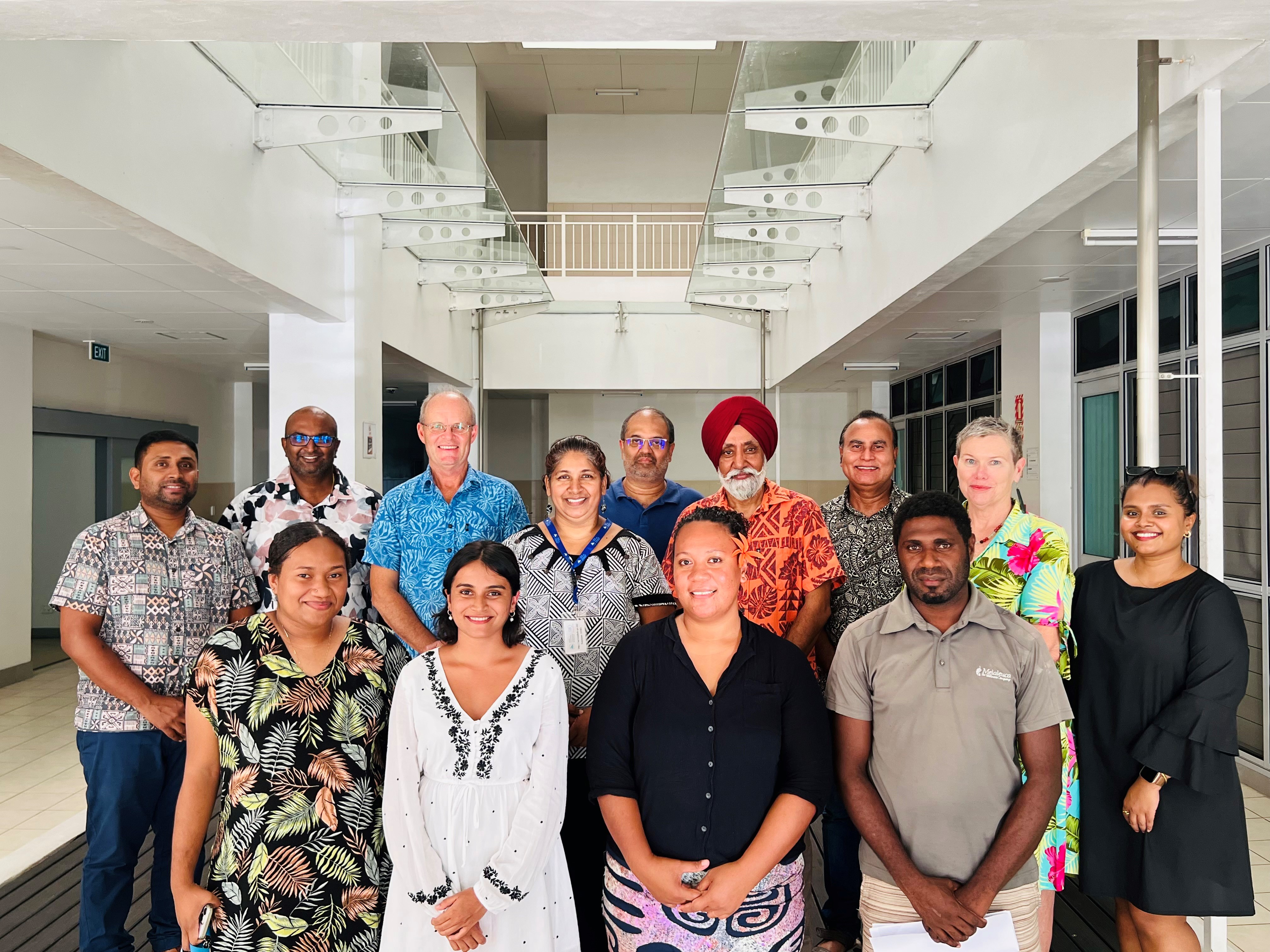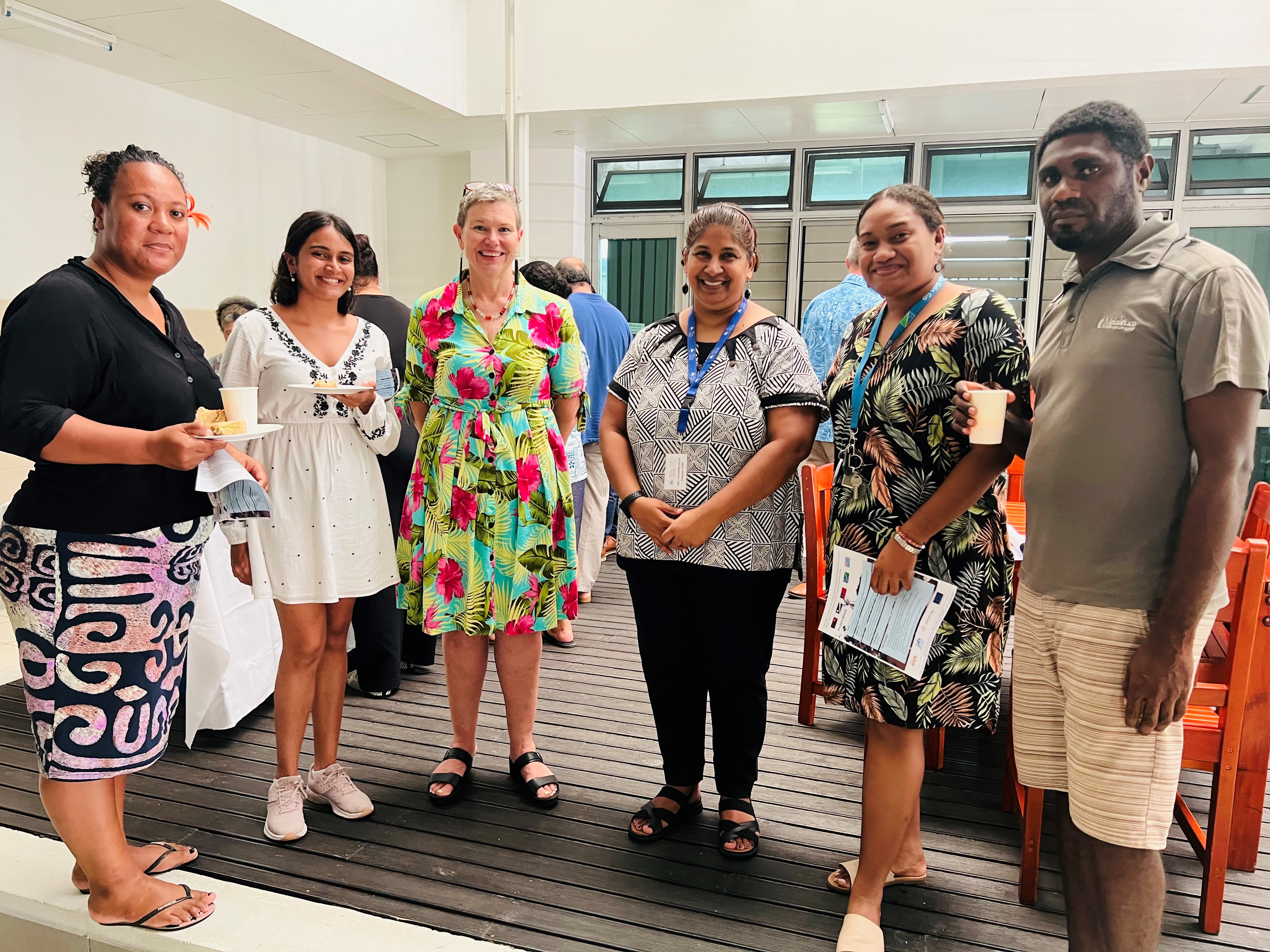
The Pacific Community's (SPC) Pacific Adoption of Waste-to-Energy Solution (PAWES) Project, in collaboration with the University of the South Pacific (USP), has announced the awarding of four master’s scholarship recipients who will undertake research in sustainable waste management.
The PAWES project aims to address waste management challenges through the adoption of innovative Waste-to-Energy (WtE) solutions. The scholarship recipients will play an important role in researching and developing strategies to integrate WtE technologies effectively within Pacific communities.
The four selected scholars from Solomon Islands, Vanuatu, Fiji and Tuvalu were chosen for their academic achievements and demonstrated commitment to advancing environmentally sustainable solutions in the Pacific region. The students, Melas Christian Nos, Natalie Kausimae, Miriam Taukiei and Nikita Shriwastow, were recently officially welcomed into the programme at USP's Suva Campus, where they met academia and other students in their field of study.
 Natalie Kausimae from Solomon Islands expressed her inspiration stemming from her country's pressing need for better waste management. Witnessing the environmental problems caused by inadequate waste practices motivated her to pursue the PAWES master's scholarship. "Through my research, I aim to showcase the importance and impact of addressing waste energy challenges in the Pacific region by presenting feasible solutions and their benefits," Natalie added.
Natalie Kausimae from Solomon Islands expressed her inspiration stemming from her country's pressing need for better waste management. Witnessing the environmental problems caused by inadequate waste practices motivated her to pursue the PAWES master's scholarship. "Through my research, I aim to showcase the importance and impact of addressing waste energy challenges in the Pacific region by presenting feasible solutions and their benefits," Natalie added.
Nikita Shriwastow from Solomon Islands conveyed her eagerness to learn from and collaborate with experts in the Waste-to-Energy sector and hopes to encourage more women and girls in STEM through her studies and research. "With three female scholarship recipients, I hope more Pasifika women take on the challenge to pursue STEM courses to tackle regional issues that directly or indirectly impact our daily lifestyles and pose a threat to our Pasifika identity".
With a background in environmental and energy studies, Melas Christian Nos, from Vanuatu, believes the programme is an opportunity to learn efficient ways to convert waste into energy. "In this way, we can keep our environment clean while producing energy, for example, using a biodigester to digest organic waste or burning plastics to spin a turbine to provide energy".
Tuvaluan national Miriam Taukiei, having witnessed firsthand the ongoing challenges of waste management and its implications for the environment and public health and having worked previously with the Tuvalu Department of Waste Management, hopes to develop practical, scalable solutions that can be implemented across Tuvalu and beyond to mitigate these growing concerns.
The welcome event featured remarks from key project stakeholders, including SPC and USP representatives. Attendees learned more about the PAWES Project's objectives, the significance of WtE solutions, and how these scholars will contribute to the initiative’s overall success.
About The Pacific Adoption of Waste to Energy Solutions (PAWES) Project:
The PAWES Project is an initiative dedicated to enhancing the Pacific region's waste management and energy security. With a focus on empowering governments and education providers, PAWES aims to implement Waste-to-Energy (WtE) technologies to address environmental challenges and promote sustainable practices. PAWES serves as a crucial step towards a resilient and eco-friendly future for the Pacific.
About the University of the South Pacific (USP):
The USP is a regional institution established in 1968, serving 12 Pacific countries. Committed to academic excellence, USP plays a crucial role in shaping the Pacific's future by fostering leadership skills and contributing meaningful research to address contemporary issues, such as climate change and sustainable development.

